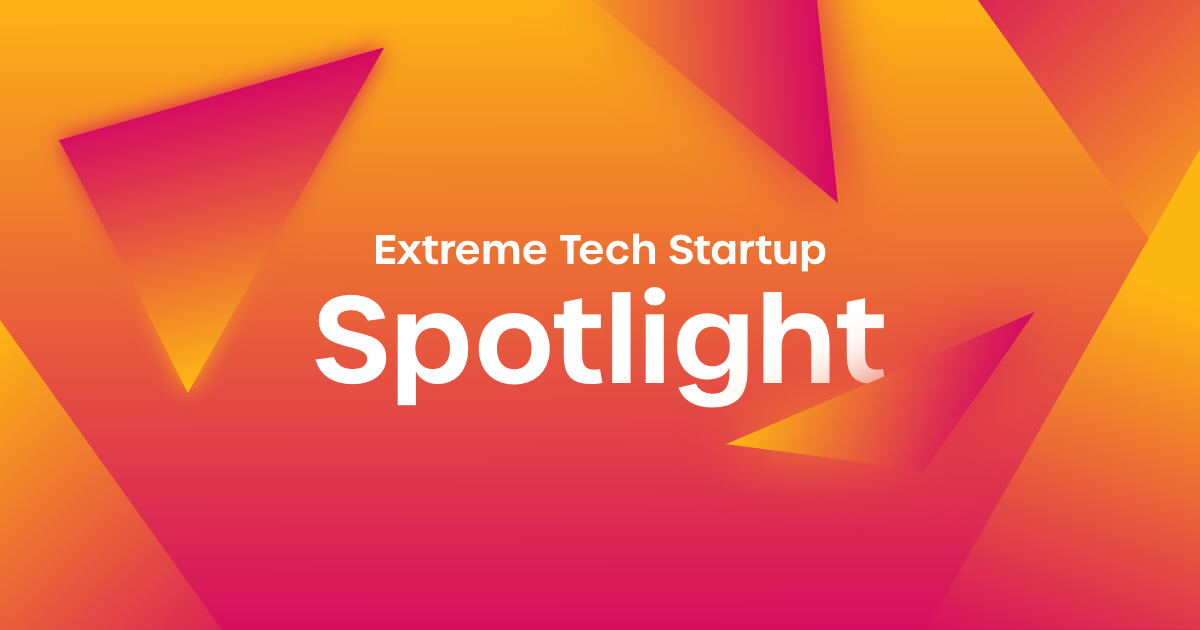This week in our Startup Spotlight blog series is our 2023 Winner, Better Production Category, UN World Food Forum Startup Innovation Awards by XTC – Zebra CropBank!


Interviewed and Edited by John Martin
Six Questions for Buffy Okeke-Ojiudu – CEO and Founder of Zebra CropBank of Nigeria

Buffy Okeke-Ojiudu received a law degree from University of Sheffield, UK in 2005, followed by a master’s degree from Harvard. In 2010, he founded Zebra with the initial purpose of producing beverages and other consumer goods, then Zebra Agro-Industries to supply inputs for the consumer goods, and finally, Zebra CropBank to support the supply chain. While running the whole Zebra Group, Buffy also became publisher of The Abuja Times newspaper, one of the major journalism channels for Nigeria’s Capital City. His experience in grappling with the challenges of the agricultural supply chain to improve both market efficiency and farmers’ welfare also led Buffy to launch two non-profits, E.A.T. Africa, focused on food system innovations, and the eponymous Ojiudu Foundation, focusing more broadly on the lives of underprivileged youth throughout Africa.
1. What problem is Zebra CropBank solving and how?
In North America, Western Europe and elsewhere it is routine that the agricultural supply-chain is highly interconnected and integrated from farm to table. The situation is quite different in many African countries. The mostly smallholder farmers suffer a significant gap in connectedness and infrastructure and as a result, lose over 1.3 billion tons of produce a year to post harvest spoilage. Add climate change to this scenario and the problems multiply because the food spoilage process is often expedited. Farmers are then forced to sell what they can quickly and at huge discounts or risk having their produce rot, keeping them trapped in a poverty cycle. Some have attempted e-commerce solutions but often those have no infrastructure to plug into and so seriously under-perform. Zebra is building a post-harvest supply chain platform that allows rural farmers to easily store, manage and monetize their produce.
2. What is your background that led YOU to founding Zebra CropBank?
I ran an earlier Zebra business for 12 years with core operations downstream in food processing and trading. I saw first-hand from the “user” end the continual problems of consistency in volume and quality on the “supply” side due to highly fragmented or broken business chains. I saw that many FMCG (fast-moving consumer good) companies in Nigeria found it easier to import raw materials than source locally, even as local farmers struggled to sell the output of our rich soils and fertile growing regions. Nigeria has an abundance of oil-producing palms and yet in just one quarter of 2019, it imported (just from Malaysia) almost a quarter-billion dollars of palm oil because Malaysian suppliers could guarantee quantity and quality, which was not as easily attainable in Nigeria. It made no sense. Sometimes if you see an unsolved problem, you just have to step up and do it yourself! But further, my Grandfather played a major role in designing and building the highly efficient and inclusive agri-business systems that underlay Nigeria’s golden agricultural era before the discovery of oil and shift to a petroleum-based economy halted and undermined Nigeria’s agricultural sector. So, I am a third generation agriculture entrepreneur and policy influencer and was fortunate to be privy to the blueprints and master plans adopted back then. This knowledge and pride in my family heritage fueled my quest to develop modern enablers to again achieve our full agricultural potential.
3. What is unique about your technology and what is its validation status?
What is one of the most prominent features of the actual landscape of more developed agricultural regions? Grain elevators. In much of Africa, such post-harvest storage facilities are few and far between and even those that are available presume farmers will transport crops long distances to these centralized depots. Zebra CropBank’s innovation is a standardized and secure farmgate storage unit, premised on retrofitted shipping containers. Deployed like nodes in “edge computing,” these microaggregation units are literally the “crop banks,” not in the financial sense (although that also) but in the traditional meaning of “bank,” as in storage cache. They are literally placed at the gate to the farm. Zebra has staff who will on-board the farm’s stock, measure it and grade it in a consistent and independent manner, after which the crops become instantly digitized. Those boxes are then connected by wireless to our cloud-services network. And here there are two vital financial benefits. One is price transparency. The farm on-site can see the price the export agents are paying at port, which is significantly better than what local brokers had paid previously. We are creating transparency, allowing the farmer to realize more of the full value for their work. Also, our quantity and quality audits allow those banked crops to be collateralized for financing. Banking/Credit systems in much of the African continent are based on very simplified and outmoded models, where borrowers are typically only able to leverage urban property holdings (ultimately locking out the rural economy). Zebra is pioneering in Nigeria a commodities trading platform that unlocks capital flow directly to farmers, financing future crops from current ones or arbitraging the best moment to release crops to the market and not always having to make desperation sales at unfair discounts. These are financial transactions that are routine in more advanced agriculture economies.
4. What are your Go-To-Market ideas and traction received so far?
First, our original food processing business was in vegetable oils and animal feed production, so our supply chain was durable crops – palm oil, soybeans, maize rice, brown nuts, not perishable fruits and vegetables. These lent themselves to a grain-elevator-type model. We launched in the eastern region that is rich in oil palms and other commodities and where Zebra Group already had factories. This allowed us to quickly iterate and reach critical mass. When we first started with our microaggregation units to support our own factories, we almost immediately had other farmers and other users asking if they could make use of them. As we were preparing the crop bank business plan, several downstream commodities customers liked it so much they offered to invest just to realize the benefits. So, we enjoyed supply pull and demand pull and after two years, we have now signed up nearly 2,000 smallholder farmers, and we have partnerships with farmers’ organizations with over 1 million members and nearly $1.5 million in stored value.
5. What’s next?
The usual – scope and scale. For scope and scale, we are expanding our “offerings” by becoming a plug-and-play platform for other service providers who want to provide something to the agricultural community: logistics, finance, inputs, processing, mechanization, mentorship. Or other providers who need something from farmers. For example, the Nigerian government is using our data aggregation to develop more accurate forecasts, plans and policy interventions. We also see that having access to real-time market telemetry is actually spurring investment that could not be previously justified, such as dedicated logistics services. As for scope, we are taking this to the middle-belt “breadbasket” of Nigeria and then up to the northern region. And as the success of our plug-and-play platform generates trust, many of our partners will quickly follow us into new regions, allowing us to offer the full suite of services more quickly, which accelerates growth in a virtuous circle. And later on, we aspire to move beyond Nigeria, to larger parts of West Africa and possibly other similar agricultural regions around the world.
6. Tell us about your experience with XTC and what were the benefits/takeaways?
The brands of Extreme Tech Challenge, the World Food Forum and the Food and Agriculture Organization of the United Nations are each and all globally respected. Having that trio select Zebra as Startup Innovation of the Year brings tremendous validation. It creates comfort and eases conversations with prospective partners. Indeed, it actually attracts partnerships that can serve to propel an organization’s solution. The experience at the actual event was great. I particularly enjoyed the camaraderie between fellow finalists and the opportunity/access to network with other stakeholders present.